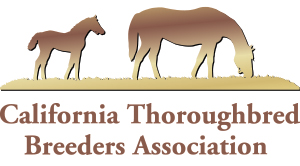By Bloodhorse.com
PLEASANTON, Calif. (June 22, 2018) — A disagreement over California law regarding simulcasting requirements between The Stronach Group and the California Horse Racing Board, will head to court, an executive from The Stronach Group said June 21.
Earlier Thursday the CHRB conditionally approved Golden Gate Fields‘ application to be licensed for its Aug. 22-Oct. 2 meet, with the contingency that The Stronach Group, which owns the track, reaches agreements with each Northern California satellite wagering facility “as required by law,” as well as a horsemen’s agreement with the Thoroughbred Owners of California and “all other outstanding items” by July 2.
Eric Sindler, who represented The Stronach Group at the meeting, maintained that the company—which is seeking to run its meet without sending its signal to the region’s satellite facilities that operate through Northern California Off-Track Wagering Inc. (NOTWINC)—does not have to reach agreements with the satellite facilities to be compliant with California law.
In comments June 13, The Stronach Group’s chief operating officer, Tim Ritvo, said Golden Gate could close if the meet is not approved “with our conditions.”
BALAN: Golden Gate Could Close Over Simulcast Issue
Ritvo did not answer multiple requests for comment Thursday, but another executive with The Stronach Group, Scott Daruty, who was not at the CHRB meeting conducted at the Alameda County Fairgrounds, said the company will be “filing a court action to get a judge to interpret the law.”
Robert Brodnik, the CHRB’s general counsel, during the meeting disagreed with the opinion that Golden Gate could lawfully operate without simulcast agreements with the Northern California brick-and-mortar satellite sites, which mostly operate out of the region’s fair locations.
“Per the CHRB Rule 2058, a racing association may simulcast its racing program as the host association, either by forming its own simulcast organization, acting on its own behalf by contracting with each individual fair or racing association facility, or by contracting with an existing simulcast organization,” Brodnik said. “If an association acts on its own behalf, it is still responsible for the provisions of CHRB Rule 2060.
“(Golden Gate) is obligated to simulcast its racing program, pursuant to the provisions in California Business and Professions Code, Section 19608, and this is because (Golden Gate) makes more than $1.5 million in average daily handle.”
Brodnik later said that Golden Gate’s application indicated it would only send its signal to Southern California simulcast sites, which he said was “in violation of the law,” because a racing association with more than $1.5 million in daily average handle must make its “signal available to authorized satellite wagering facilities.”
In the moments before the board approved Golden Gate’s application, Sindler gave no indication The Stronach Group would meet the CHRB’s conditions.
“Nothing has changed those statements (made by Ritvo) and those announcements that have been made,” Sindler said. “We don’t think it’s necessary under the law, and we don’t think it’s the right financial move any more (to be involved with NOTWINC).”
“As Eric said at the CHRB meeting today, this isn’t acrimonious,” Daruty added. “There are no hard feelings. It’s truly a disagreement over the law. We all can read the words on the page, but the CHRB comes to a very different interpretation”
TOC president and CEO Greg Avioli called claims that NOTWINC was not profitable “fake facts.” Elizabeth Morey, TOC’s director of racing and Northern California operations said “NOTWINC expenses exceed their statutory distribution,” but that the NOTWINC satellites “are still profitable to purses and commissions, and contribute to a number of other industry organizations.” Morey also said NOTWINC contributed $5.7 million in purses to Golden Gate’s meets in 2017 and $4.8 million in commissions.
“The idea that this network is not making money is untrue,” Morey said. “It is certainly making less money than it has in the past, and the TOC does not want to prevent The Stronach Group (from) moving to a more economic model. (Advance-deposit wagering) is growing—it’s growing every year (and) the simulcast network does handle less money every year. There should be an agreement where everyone can work together toward finding a model that works for everyone without—so to speak—throwing the baby out with the bathwater.”
Daruty objected to the notion that NOTWINC was profitable, and pointed to the same “statutory distribution” Morey referenced.
“Everybody at the meeting today was quoting California law and telling us that we are wrong in our interpretation,” said Daruty, who listened to the meeting through streaming audio on the CHRB website. “We happen to think we’re right, but we’ll let a judge decide. While they’re telling us we’re wrong, they’re ignoring the law in saying NOTWINC is profitable. NOTWINC cannot be funded by anything over and above the percentage (written in) the statute.
“What they’re saying is we should voluntarily contribute over and above the statute to keep NOTWINC going.”
The TOC’s main concern is purse generation without NOTWINC. The CHRB’s Madeline Auerbach, an owner and breeder herself, questioned Sindler about what The Stronach Group would use to replace the handle and purses generated by the simulcast network. The Stronach Group also owns ADW Xpressbet.
“What is The Stronach Group planning to do, if they’re not planning to distribute the signal, so that money is available for purses? What are they planning to do to ensure that there will be money enough for purses?” Auerbach asked.
“We’re still in discussions about that at the moment,” Sindler answered.
“So, in other words, you want to drop (NOTWINC) without a clear plan about how to replace it? … These are the tough questions, and legitimate questions. You’re asking to have a license given to you (while) dropping $6.5 million out of purses. So my question to you is, what did you put in place to ensure we as an industry can withstand that shortfall?” Auerbach reiterated.
Earlier in the meeting Avioli spoke out against The Stronach Group’s tactics in Northern California and was not alone in his criticism.
“The goal has been to create chaos by The Stronach Group, and they have created chaos,” Avioli said. “I think we can all agree on that. The legal issue will be decided one way or the other.”
Avioli also expressed doubt a horsemen’s agreement could be reached between TOC and Golden Gate.
“There is no path to a horseman’s agreement for Golden Gate, because what Golden Gate is asking for is the ability to run without a simulcast network that generates approximately 50% of the purses at Golden Gate,” Avioli said. “Of course the horsemen could not agree to that. Regardless of how this gets resolved in court in the next 30 days, there’s no practical way that I can see—absent a significant, long-term guarantee from The Stronach Group for purses, regardless of the handle generated—I don’t think there’s a way for TOC to give a horseman’s agreement. It would be violating a number of obligations we have to our members.”
Daruty said, after listening to Avioli’s comments, “Greg said a lot of things that we disagree with—factually and philosophically.”
In the public comment portion of the meeting, Julie Lind Rupp, who represented the San Mateo Labor Council, called The Stronach Group’s actions “unconscionable and threatening to the lives and livelihoods of hundreds of hard-working employees. … Should Stronach’s power play be successful, the impact on all satellite wagering facilities and their workers would be devastating,” and implored the CHRB “to stand up to their bullying.”
Rick Pickering, the CEO of Cal Expo and the State Fair, referenced multiple instances from the past he viewed as threats made by The Stronach Group to close Golden Gate, and called the organization’s intention to pull out of NOTWINC “an affront to this board, an affront to NOTWINC, an affront to Thoroughbred owners, and most recently a direct attack against organized labor in the state of California.”
Pickering further insinuated the moves from The Stronach Group had motivations outside of racing.
“Closing fair satellite wagering facilities, we believe, is an additional step, should sports wagering become legalized in California,” Pickering said. “If the satellites are out of business, there’s plays for the future. We don’t believe they’re playing checkers. We believe they’re playing chess. … Keeping us off balance with these various grenades makes it very frustrating for the fairs, for the horsemen, for labor, for you as a board.
“We certainly understand they need their books to balance, but when we see Golden Gate Fields being put on the market on a fairly routine basis for development, we have to question—will we continue to sacrifice all the North in order to forestall the closing of Golden Gate Fields? We would not want to see them close, but it certainly seems this board gets faced with, ‘If we don’t do what they want, they’ll close.'”
Daruty responded to the criticism with an assurance that The Stronach Group is taking these measures to better the industry.
“For all the criticism that we’re taking, the main point that I think everybody is missing is we’re doing what we’re doing to try to strengthen the industry,” he said. “I haven’t had a single person say to me the Northern California (simulcast) network is good, or it makes sense, or we should keep it the same way. Everybody I talk to acknowledges the problem and that it needs to be fixed, but nobody has any ideas or has made any effort to fix it.”


